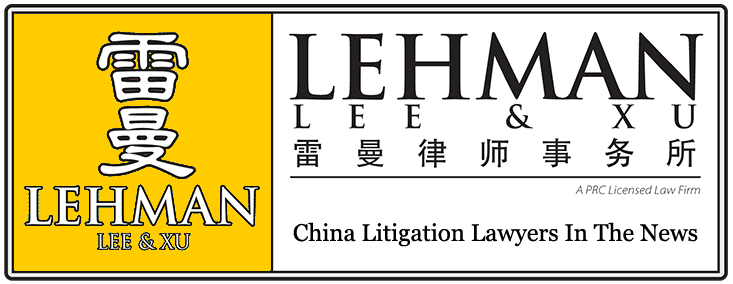When massive protests erupted in early July in the city of Shifang in southwestern China’s Sichuan province, one banner spoke volumes about both the increasingly assertive environmental activism movement in China and the youth of many of its participants: “Unite to protect the environment for the next generation.”
The Shifang protests were directed against a metals plant the city government had approved despite widespread concerns over possible pollution. The police, called in to break up demonstrations, tear-gassed and arrested dozens of protesters, including young students. Days later, the Shifang government announced that it had permanently cancelled the proposed construction of the project.
The Shifang protests are notable because of their size, their success in derailing a major project for environmental reasons and also because they reportedly involved the participation of a significant number of students. The protests may augur both a growing public anger over environmental degradation and a rise of political activism among China’s younger generation – trends that could lead in turn to an increase in legal challenges to the arbitrary behavior of local governments.
As observed in a story by the New York Times, the Shifang protests are only the latest in a string of large demonstrations that have been successful in pushing Chinese leaders to adhere to stricter environmental standards in industrial projects. In recent months, the story notes, local officials responded to protests against a coal-fired power plant in South China, a solar energy plant near Shanghai, and a petrochemical plant in Dalian.
Protests are often the only means available to citizens to counter the actions of local officials who promote the establishment of enterprises that emit health-threatening pollutants into air or water, or both. They sometimes inspire or dovetail with lawsuits.
There are many causes for frustration. Local governments frequently do not adequately inform citizens of contemplated projects and their environmental implications. This was certainly the case in Shifang, where the government reportedly released only a brief report that lacked information on solid waste and waste water.
Environmental officials who monitor enterprises often lack support from local governments that prefer to overlook pollution problems rather than take measures that might reduce revenue.
Writing in the Journal of Contemporary China, Benjamin van Rooij offers a good summary of the numerous obstacles to effective enforcement of environmental standards in China. Among them: A lack of information about procedures and costs associated with environmental litigation; the unwillingness of courts to accept cases in deference to the wishes of local governments; unresponsiveness from administrative institutions such as petitions offices and environmental protection bureaus; and the willingness of police to use force in repressing demonstrations.
And then there are the pitfalls of the law itself: Litigants must prove that the pollution in question causes death, ill health or property damage; and they must specify the cause of pollution and the defendant’s liability. Class action cases may be divided into separate suits in a lower level court, which can increase the protectionist influence of local courts.
Such obstacles may explain the low number of civil suits against pollution: Van Rooij found only slightly more than 2,000 cases in 2006.
Despite, or perhaps because of, difficulties in litigation, citizen outcries against projects deemed hostile to the environment appear to be on the rise. The newly visible participation of members of China’s young generation in the Shifang events may signal the rise of a new politically savvy generation. As recent story by Financial Times notes, the Shifang protest “has revealed a potentially important shift in the country’s politics: youth were at the forefront of the three-day demonstration, exposing a new vein of activism in a generation seen by many as apathetic.”
Contrary to popular perception inside China, the Financial Times argues that members the so-called post-‘90 generation are more politically active than their predecessors. They tend to be highly educated, and they also face less social mobility than in the two preceding generations. They also have grown up with more access to information, which has heightened their political awareness. The article quotes a well-known Chinese blogger: “Post-90 is the generation of social media so they embrace freedom of speech as their birth right.”
Another observer of Chinese politics, Russell Leigh Moses, has speculated differently on possible effects of the Shifang protests, asserting that some critics are beginning to wonder how the CCP can “maintain credibility with an increasingly plugged-in and rights- conscious populace.” Local cadres are caught by a dilemma: How to promote economic growth if at the same time they have to promote industries that might create pollution? Moses suggests that rather than use force to repress protests, something other than “the same old economic development” may have to be offered—but frustrated local cadres don’t yet know how Beijing might change policy.
There is every reason to expect more reports of citizens’ complaints against projects perceived as hostile to the environment. In addition, it can be expected that young people, whose environmental awareness has been raised and who are often under-employed, will join protesting citizens.
But as prominent Chinese environmental activist Ma Jun noted in a recent interview with business magazine Caixin, protests alone will not lead to long-term resolution of the country’s environmental problems. What’s needed, he says, is “ to liberalize environmental litigation and allow activists to speak in public. Right now, this channel is essentially shut off….the solutions to environmental problems must be legalized.”
An increase in environmental protest could lead to an increase the number of cases brought to the courts, which under current policies are being pressed to mediate sensitive cases that might affect “social stability.” The key question is how the courts respond. If they defer to the local governments in such circumstances, they could inspire yet more citizen anger. But if the courts are perceived by protesting citizens as helping to bring about satisfactory mediated solutions to environmental disputes, they could play a useful role.
Web link: http://blogs.wsj.com/chinarealtime/2012/07/16/chinas-young-and-restless-could-test-legal-system/

